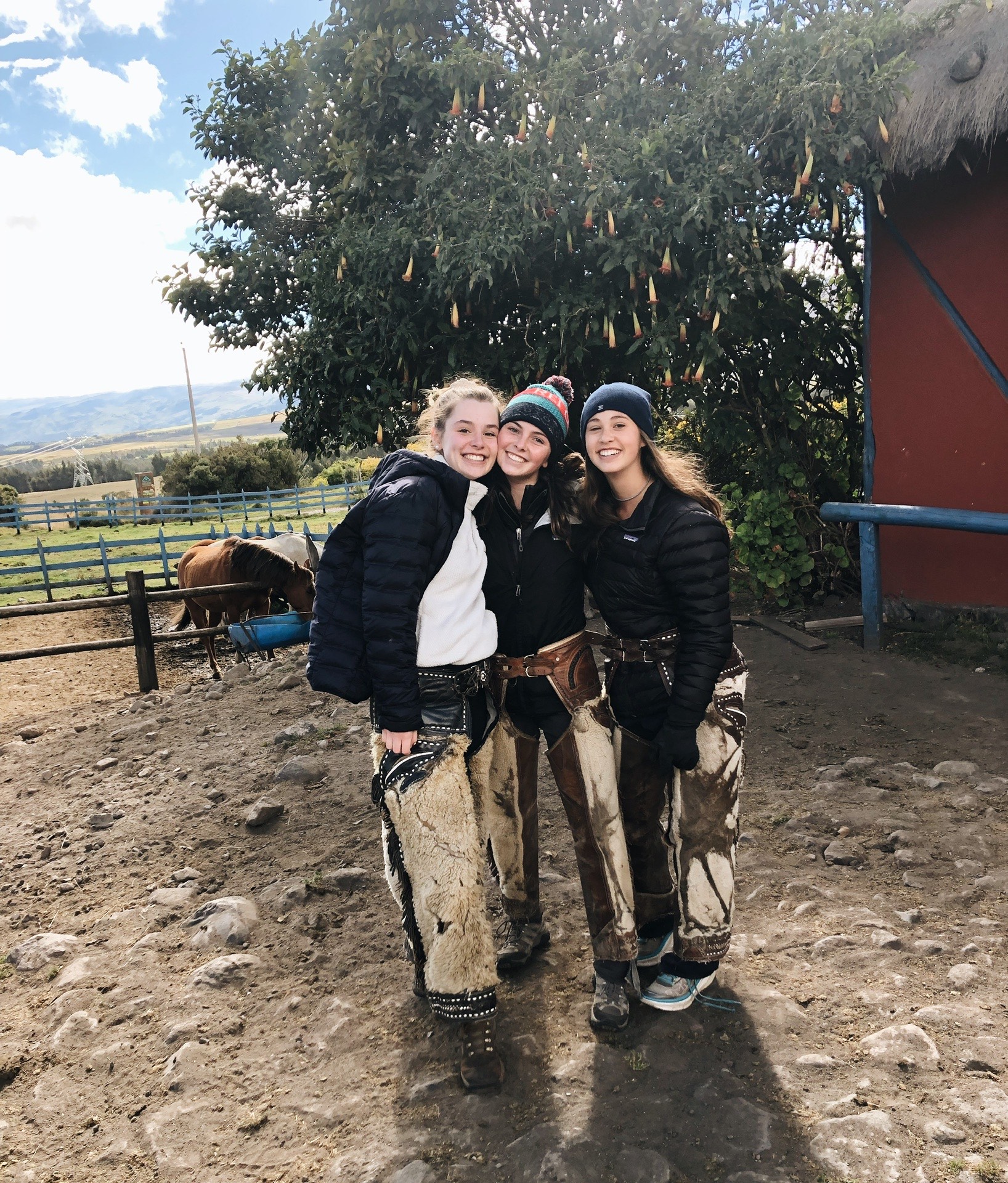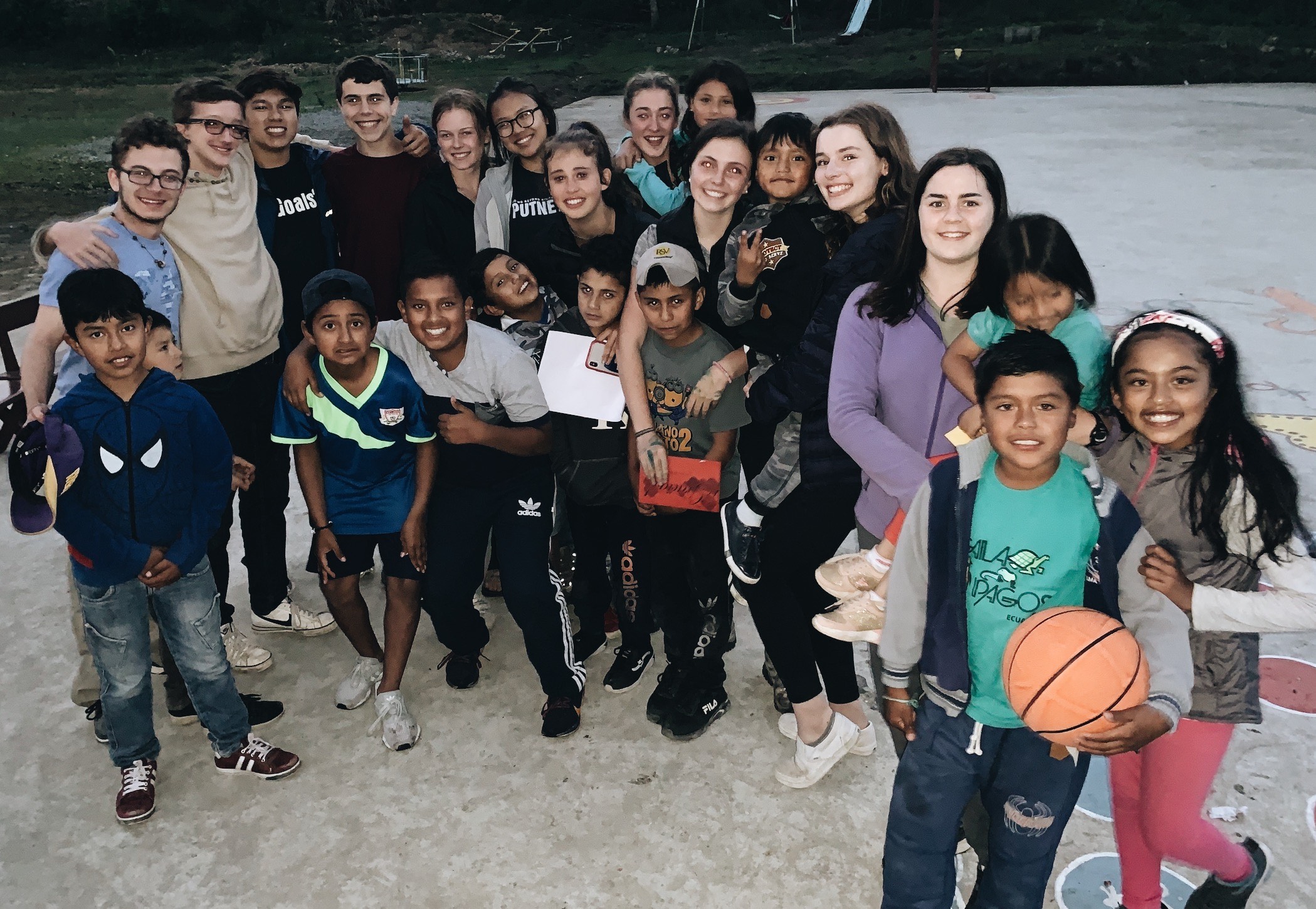Jessica is an alum of our high school Language program in Ecuador & the Galápagos (a program that also includes service work). She included her experience in her college essay and says, “I’m very proud to have discussed Putney in my application because I feel my experience shaped me in huge ways, particularly in ways pertaining to my cultural perspective, love of Spanish and understanding of the concept of community.” Jessica will be attending Stanford, where she plans to study engineering and Spanish.
* * *

I wish all American cities had plazas. In the Plaza Mayor of Salamanca, Spain, where I lived for an immersion program two summers ago, people from many walks of life gathered at all times of day. Whether savoring ice cream on a hot afternoon, sitting on the cobblestones with friends, or standing jaw-dropped at the illuminated plaza’s nightly elegance (which in retrospect, might have been more of an American thing), everyone’s paths constantly crossed. Generations connected simply through their presence in the plaza, sharing in little moments that added up to a marvelous way of enjoying life. La plaza means public square, but I’ve never found the definition to quite capture what it really represents: the vibrant center and heart of the Salamancan community.
To me, the Plaza was dreamlike. A historic, opulent place to gather and share a sense of belonging, it was my favorite slice of Spanish life. But I wondered if that was all it was—a beautiful dream an ocean away.
A summer later, in the tiny mountain village of Las Tolas, Ecuador, I struggled to push the soil-laden wheelbarrow up the steep hill. I should really stop skipping arm workouts, I thought to myself. For the time being, my chicken arms and I were just going to have to keep up. I was surrounded by a hive of activity: cement pouring, trail building, and brick lifting. Las Tolas was building a community center that would enable future generations to maintain their town through tourism. Every resident, from teenage boys to their abuelas, came to the worksite each day whenever they could spare the time, dedicating endless hours to the project solely for the community’s benefit. I was struck by the way Las Tolas came together to work on the tourism center and equally struck by how they welcomed and appreciated the help of our student group.
“La minga quiere decir…” began Salamón, a village leader always ready with wise advice and a warm smile, as he explained the remarkable display of duty and shared purpose. At first, I believed minga simply meant community.

My experiences in Salamanca’s Plaza and with the influential role of minga in Las Tolas inspired me. Having never been more impressed than I was by the strong sense of belonging found in Salamanca and Las Tolas, I wondered: could I find that same belonging back home?
As time passed, I remembered Salomón’s wisdom and finally understood how it applied to my own life. For minga is not the community itself, but the connections each individual fosters within the community to create its strength.
Without plazas or small-town relationships in my American hometown, community is less visible but just as indispensable. American cities, though lamentably plaza-free, still have communities where people feel powerfully invested in something greater than themselves.
I find minga back home in forgetting myself and working towards a better future for my community. It means infusing humor, collaboration, and positivity into my classrooms, orienting freshmen in their new school, and leading Mock Trial with creativity and a desire for improvement. It means building cross-generational connections, like those I make during my shifts as a hostess with weekly regulars and new customers alike. It means tutoring underserved students in my church ministry so they have an equitable chance at success, bringing competitive spirit and enthusiasm to my tennis and volleyball teams, and sharing my excitement about Spanish with younger students who might need that extra bit of encouragement from their academic coach.
As I ponder life in college, I look forward to joining and contributing to a new community in which I hope to find the shared purpose of inspiring pursuits and a meaningful sense of belonging.






